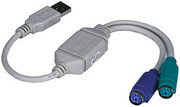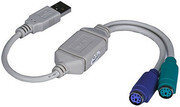Since, trents is the OP...
Bill, are you serious when you say you have never had an Microsoft update break a system beyond what a simple reboot couldn't fix?
I am absolutely serious. For sure, I am talking about "my" personal machines and those "client systems I am responsible for".
Have I seen computers "bricked" (that is, would not even boot) after updates where a simple reboot did not fix? Yes! Absolutely! I am not and would not deny that, or try to BS you, trents. We've had
too many "customer" (not client) computers come into the shop that were bricked. What I said was "my" computers and those "I am responsible for" never had problems that severe.
And why is that? At least 3 reasons (I believe). First, with just a few exceptions, all the computers were built with modern components designed for W10 and had W10 installed on them from day 1. The rest were "late model" W7 (and a couple W8.1) systems that were upgraded to W10. The oldest, IIRC, is my own 10 year old Toshiba notebook, which came with W7 and later updated to W10.
By "late model", I mean hardware made specifically for W7. "Early model" W7 systems often were designed for Vista or even XP era hardware and while we did not track and chart specifics, I feel safe to say it was the early model W7 systems that were upgraded to W10 that had the most problems with W10 WU. I note some did not use W10-specific drivers and none were made available.
And second (and this is likely a primary reason), very little "dinking" with the default settings was done on any of these (mine and client) machines. That is, for example, all page files are managed by Windows. Indexing is left enabled. They all use Windows Defender and Windows Firewall (and none have been infected either!!!!

). Most do, however, have Malwarebytes Free or Premium as secondary scanners installed. Windows Update is set at the default settings.
And third, all are maintained with an adequate amount of free disk space on the boot drive (I believe this is very important too!).
Users, of course, can (and do - because they are not clones!

) personalize their computers as much as Windows will allow and several (including me on 2 of my systems) use Start10 or ClassicShell. A few, including me do some minor overclocking, but only via presets as provided by their motherboard's own OC utilities.
None of these systems (except my Toshiba), are early model W7, Vista, or XP systems that were upgraded to W10. That, IMO, is significant based on what we have seen come into the shop. That is, the older the hardware, the greater chance of problems and IMO, that is due to poor driver support by the hardware makers.
EarthDog said:
He's also generally been working with clones (same/similar systems in a company/enterprise enviro) over his illustrious career.

Gee whiz, ED. You know absolutely nothing about my personal machines other than, maybe, the one I listed at TPU. Now you are going to assume you know all about my systems and the ones I'm responsible for?

FTR, none of my 6 personal systems are clones. Five are custom built PCs. Four use Gigabyte mobos (though all are different models), one is a Toshiba notebook, and the 6th is an ITX ASUS. None were setup with the same image/clone disk.
For my client systems, my largest client is a small real estate office with 9 machines with a mix of custom built PCs, Dell PCs, and Acer notebooks. This is similar to my other clients with their SOHO setups where there are as few as 1 computer up to 6. Some are private people with their home computer(s), some are small businesses, one is a church office, and another is a non-profit. There is a mix of Intel and AMD systems, some with graphics cards, some using integrated. Some connect via Ethernet, some wifi. Some Windows 10 Pro. Some Home.
While a few may have started out
when first assembled with a common image, they quickly became unique systems once handed over to the client.
I retired from supporting large scale company/corporate environments way back in 2004 (
long before W10, W8.x or even W7!), as seen via the link in my sig.
So please - stop telling others
falsehoods about me. You don't know me personally and have no clue [at all] about what I have or what I do. Frankly, that's just not cool and something I might expect to see at TPU, but not here.

That said, we've lost dozens of machines at a time due to patches we had to roll back in an enterprise environment. YMMV.
They also pulled back a full update from public once and released it again (iirc) as it was deleting files on machines without permission which didnt have enough space. MS has pulled back multiple patches and updates over the years for various reasons involving negative results. They have 'universally' pulled these things regardless if every single PC is affected or not.
Let's clarify a couple things. Dozens of machines in an enterprise environment likely were clones (perhaps, even, with identical hardware) or at least have very common configurations.
You can't "roll back" a "bricked" machine.
And yes, Microsoft has pulled several Updates because they caused problems for "a few" (relatively speaking) users
clearly indicating more intensive and extensive beta testing should have been done before release. But again, there is just no way even a company as large as Microsoft, can conceive of or test every configuration in every possible scenario. For the big updates, they try with the Insider program where they have enlisted millions of volunteer users to try out new updates and features before general release. But even then, that is a limited field of scenarios.
If they pull an update after users universally have the problem, THAT is a problem.
I totally agree. But "universally" suggests every user everywhere and that, of course, has never happened or even come close to happening - despite what some bloggers, some in the IT press, and some MS haters would like us to believe.
Speaking of the Windows Insider program - Microsoft did indeed fail miserably with that file deleting fiasco because the problem was identified and reported by several Insiders BEFORE the update was released to the general public. But once again, the marketing weenies and upper management put their grubby little fingers in there and pushed out the update against the recommendation of the developers! The developers wanted to delay the release but were overruled just so a stupid deadline could be met. Those weenies were too worried about the bad press they surely would have received [fair or not] had they missed the deadline. But the end result was much worse press - and worse, upset customers!
IMO, some heads should have rolled on that one. Still, MS acknowledged their blunder and promised to do better - and so far they have. But in reality, only time will tell. They cannot be perfect 100% of the time. But they can strive to get there and listening to their developers and beta testers/Insiders is (if they truly are) a good start.
This (
With new feature update calendar, Microsoft finally settles on a sensible Windows 10 release schedule) may be a sign they are serious. Let's just hope this is not more marketing hype/hogwash.



 Gee whiz, ED. You know absolutely nothing about my personal machines other than, maybe, the one I listed at TPU. Now you are going to assume you know all about my systems and the ones I'm responsible for?
Gee whiz, ED. You know absolutely nothing about my personal machines other than, maybe, the one I listed at TPU. Now you are going to assume you know all about my systems and the ones I'm responsible for?